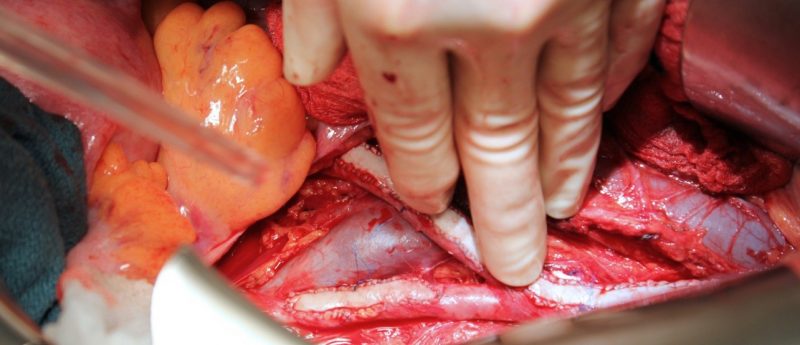Pig-grown human organs for solving organ shortage

Scientists from the University of California, Davis (CA, USA) are trying to grow human organs inside pigs in order to solve the deficit in the number of suitable transplant organs available to patients.
Biological incubator
A team from the University of California, Davis (CA, USA) is attempting to solve the current transplant organ shortage by researching the potential to grow human organs within pigs — as biological incubators. Aside from having one human organ, the pigs would appear and behave the same as non-chimeric pigs.
In order to create the human—pig chimeric embryos, which are currently being grown in pigs for up to 28 days by the University of California, Davis team, CRISPR is used to remove the pig genes from the newly fertilized embryo that would grow the specified organ, for example a pancreas. Next, iPSCs are injected into the pig embryos, before the pregnancies are terminated and the tissues analyzed to see if the human cells grew the organ that was genetically deleted from the pig embryo.
Pablo Ross, a reproductive biologist leading the research, explained that they hope the pig embryo will develop normally but the pancreas will be made almost exclusively out of human cells. This would make it compatible with a patient for xenotransplantation.
Concerns
However, there are ethical concerns around the concept of using animals as biological incubators for human organs. First, there is the argument it is creating unnecessary animal suffering when we could focus on getting more people registered for organ donation. Second, there is concern that the human cells could migrate to the developing brain and humanize the animal in some way.
As a result the imposed a moratorium on funding such experiments last year, however Ross believes this is unlikely. “We think there is very low potential for a human brain to grow, but this is something we will be investigating.”
In theory the process means that “the organ would be an exact genetic copy of your liver but a much younger and healthier version and you would not need to take immunosuppressive drugs which carry side-effects,” as Prof. Walter Low, professor in the department of neurosurgery, University of Minnesota (Minneapolis, MN, USA), explained. However, specifically deleting the correct genes without causing off-target effects and not introducing infections from the animals are challenges.
Other work
The same team have carried out the same process previously, but without deleting the pig organ genes to create a ‘genetic niche’ for the human stem cells to fill in, which resulted in the human cells being out-competed by the pig ones.
Other US teams have created human—pig chimeric embryos but none has allowed the fetuses to be born; Low for example has been looking to create dopamine-producing human neurons from chimeric embryos to treat patients with Parkinson’s disease, and has only allowed them to gestate to 62 days (the normal gestation period is ~114 days). He commented: “With every organ we will look at what’s happening in the brain and if we find that it’s too human like, then we won’t let those foetuses be born”.
Source: http://www.bbc.co.uk/news/health-36437428
More on this story can be seen in the UK tonight on Panorama at 20.30 BST.